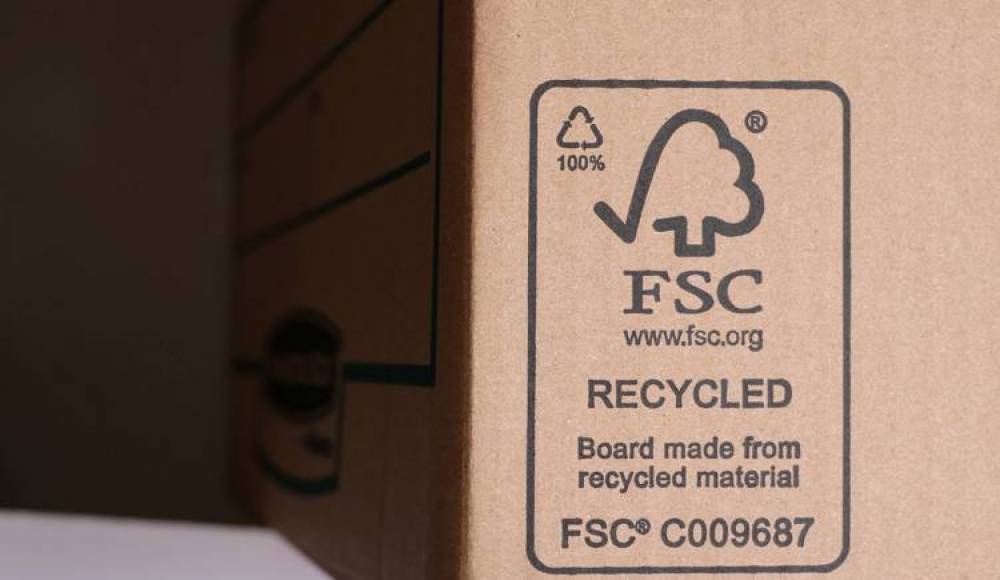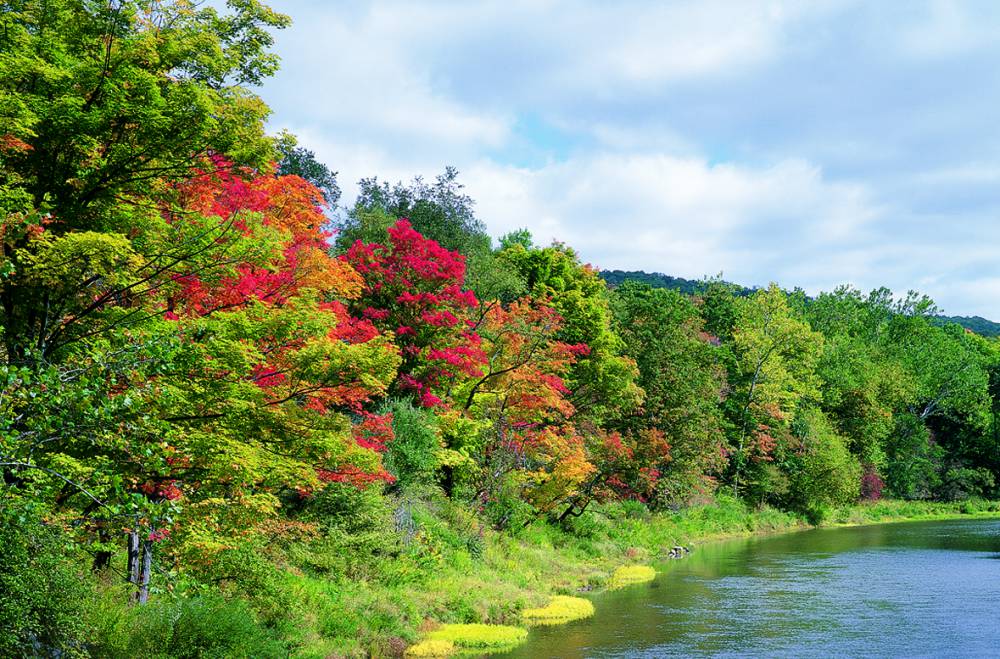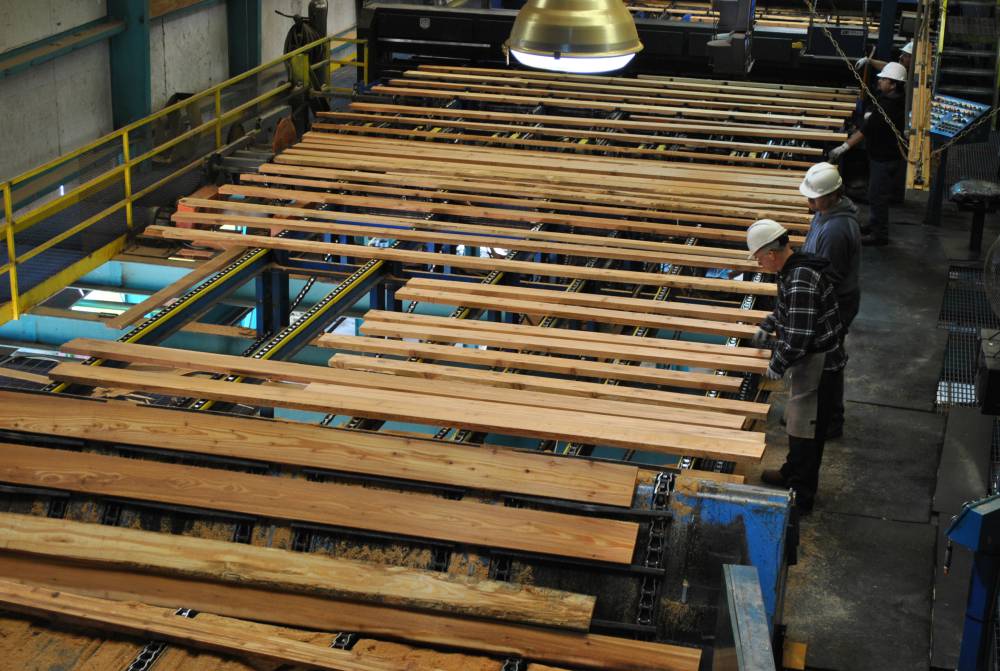

We may earn revenue from the products available on this page and participate in affiliate programs. Learn More ›
Most DIYers spend at least a bit of time walking up and down the aisles of a local home improvement store. Among the stacks of lumber, plywood, and even ready-to-assemble furniture, you might’ve noticed a green symbol consisting of a checkmark and the outline of a tree. That’s the FSC-certified symbol, and it’s more than just a catchy logo.
But what is FSC-certified wood? And why does it matter? And why should you buy it over other types of lumber when it’s available? Keep reading to find out.
What is the FSC?
Before we go too deeply into what FSC certification means, let’s take a look at the organization itself. FSC stands for Forest Stewardship Council, and it’s an international non-profit founded in 1993. It helps protect the world’s forests from unethical and illegal logging.
The FSC is a voluntary program through which forest management and chain-of-custody operations can pursue certification. During the certification process, an FSC-accredited Certifier (independent of the FSC and the company being audited) will assess the operation. If it fits the FSC’s criteria for sustainable and ethical management, the operation will receive certification.
What is an FSC Certification?
When a Certifier audits an operation’s presence in a forest, they use a strict set of standards based on the FSC’s 10 Principles of Forest Stewardship. In a nutshell, those rules include:
- Comply with all applicable laws and regulations.
- Enhance the quality of life of workers.
- Identify and uphold Indigenous Peoples’ legal and customary rights of ownership.
- Enhance the quality of life of local communities.
- Manage the range of multiple products and services of the Management Unit.
- Maintain, conserve, or restore ecosystem services and environmental value of the Management Unit.
- Have a management plan consistent with its policies and objectives and proportionate to the scale, intensity, and risks of its management activities.
- Demonstrate that the impacts of management activities are monitored and evaluated to implement adaptive management.
- Maintain or enhance the High Conservation Values in the Management Unit through applying the precautionary approach.
- Management activities conducted by or for the organization for the management unit shall be selected and implemented consistent with the organization’s economic, environmental, and social policies and objectives and in compliance with the Principles and Criteria collectively.
If you see the FSC logo on a piece of lumber, a cabinet, or a piece of outdoor furniture, the FSC found the manufacturer and materials to be in compliance with the above standards.

Why FSC Certification is Important
According to the FSC’s website, over 30 percent of the global land area is forest. And, up to 70 percent of terrestrial animals and plants live in those forests. It’s pretty important that these areas benefit from protection.
In the U.S. and Canada alone, the FSC monitors 154.7 million acres of forest. Within the U.S., the FSC certifies 6,273 sites and 3,756 companies’ chains of custody. While those companies might operate to the best of their ethical ability in a world without the FSC, the standards for certification offer the guidelines necessary to stay on a sustainable path.
Levels of FSC Certification
It isn’t always an all-or-nothing scenario with the FSC. There are levels to their certification with increasingly strict standards:
- FSC Mix: Products with this certification include at least 70 percent of wood (or paper) from FSC-certified recycled material, with the other 30 percent from controlled wood.
- FSC Recycled: All the wood and paper used to produce the product comes from 100 percent recycled content.
- FSC 100%: All the wood and paper used comes from FSC-certified forests

Products the FSC Certifies
The FSC is involved in most things forestry, and the products that it certifies range quite a bit.
The FSC certifies basic wood-based building materials, such as framing lumber, plywood of all sorts, and hardwoods used in cabinetry or furniture making. The FSC also certifies the tropical hardwoods that come from rain forests and other areas heavily hit by deforestation, which are often used in outdoor furniture applications.
Paper products can also carry FSC certifications if they meet the strict production and chain-of-custody criteria.
Is FSC-Certified Wood Expensive?
As it should be, price is a major consideration for most wood shoppers. And the answer to the above question can be frustrating: It depends.
According to The City of Santa Monica, the cost of FSC-certified wood products is typically between zero and 15 percent more expensive. From a builder’s point of view, 15 percent on a large lumber package is substantial.
Is it worth it?
When taking into account the costs of operating sustainably and ethically, as well as enriching the lives of everyone impacted by forestry operations, the answer is typically yes. And it’s for that reason that the FSC exists.
Is FSC-Certified Wood Readily Available?
Most shoppers would agree that ethical and sustainable forestry practices are important, but it’s not always possible to go fully FSC certified. When costs are high, some lumber dealers and home improvement centers might not be willing to pay the extra costs associated with FSC lumber.
With that said, you can use the FSC’s search tool to find FSC-certified wood. Also, be sure to ask any contractor, cabinetmaker, or furniture maker you plan to work with if they use wood certified by the FSC.
